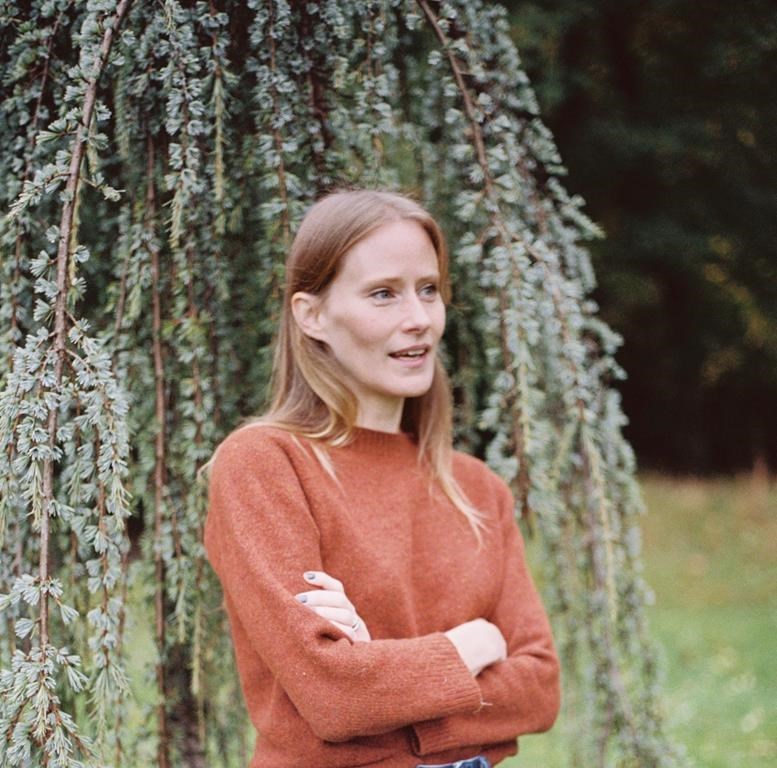When Sarah Bernstein started writing her second novel, "Study for Obedience," the words of another artist were on her mind.
She had previously attended a retrospective of visual artist Paula Rego's work in Edinburgh, Scotland and was struck by a particular quote emblazoned on the art gallery wall.
"She said something like, 'I can turn the tables, I can do as I want, I can make my women obedient and murderous at the same time,'" Bernstein recalled in an interview.
The Montreal-born author said that quote captured an "interesting tension" and provided inspiration for the novel that has now been longlisted for this year's prestigious Booker Prize. The literary award recognizes the best long fiction work published in the U.K. and Ireland and written inEnglish.
Bernstein, who lives and teaches in Scotland, said she was in "disbelief" when her editor told her about the Booker Prize nod.
“I can’t stress enough how inconceivable this was before I ended up on the list,” she said.
“Study for Obedience,” first published by Granta Books in the U.K., explores the ideas of prejudice, power dynamics and how history shapes people. It's scheduled for release in Canada by Penguin Random House later this month.
It has been described as “unsettling” and one review called it a “masterly” followup to Bernstein’s 2021 debut novel, “The Coming Bad Days.”
In “Study for Obedience,” an unreliable narrator weaves the story of a young woman who moves to a remote country of her ancestors to take care of her brother after his wife leaves him. The woman’s arrival is followed by “a series of inexplicable events” and growing hostility from the local community, even as she tries to do good.
Bernstein said she wanted to explore a character who is using “typically feminized characteristics" that involve listening, obeying and taking care of others, but can also "take on a mysterious power over other people.”
Folded into that are questions about how history is transmitted through generations and how behaviours are learned either through explicit instruction or simple observation, she said.
Bernstein said she still can’t fully consider what the Booker Prize nod might mean for her literary future. She imagines the recognition that comes with being in the running for the 50,000-pound (about $85,000) prize will make it easier for her to publish a third novel, which she was planning to do anyway.
“You have to keep going and not really think about how people might respond to it,” she said of her writing projects.
Earlier this year, Bernstein's name also appeared on literary magazine Granta’s list of best young British novelists — a once-in-a-decade recognition of 20 writers under the age of 40.
Bernstein studied creative writing and English at Concordia University in Montreal and then moved to New Brunswick to get a master’s degree. She moved to Edinburgh in 2013 to work on her PhD, and then "just kind of stayed on in Scotland.”
She now lives in the Scottish Highlands and works as a literature and creative writing lecturer at the University of Strathclyde, a job that allows her to balance academic work with fiction writing.
Since the publication of “Study for Obedience” and the Booker Prize nominee announcement, Bernstein said she’s been making connections anew with writers in Montreal and the Maritimes and feeling like “it’s still possible to be a Canadian writer and not live there.”
Although she’s been setting down roots in Scotland, Bernstein said she’s always hoped to come back to Canada at some point.
The winner of the Booker Prize is set to be announced Nov. 26, after the nominee list is pared down to six finalists in September. Past nominees and winners include Alice Munro, Salman Rushdie, Margaret Atwood, Michael Ondatjee and Zadie Smith.
This report by The Canadian Press was first published Aug. 12, 2023.
Sonja Puzic, The Canadian Press




